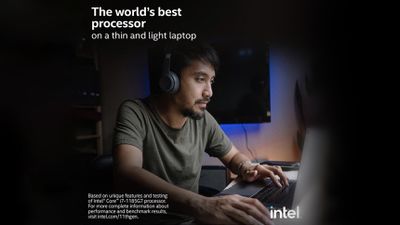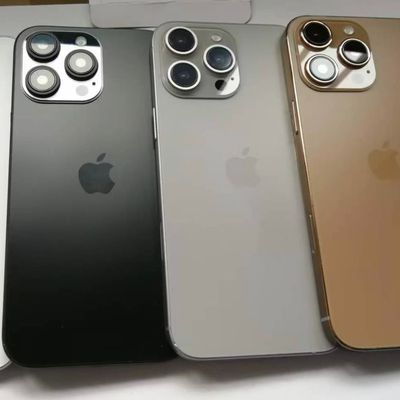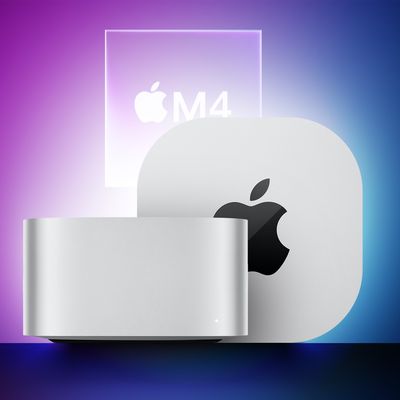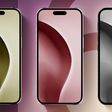Intel Ad for 'World's Best Processor' Features a MacBook Pro
Intel has been on a relentless marketing drive against Mac computers in recent weeks, positioning them as inferior to Windows laptops powered by Intel processors. In a slight slip-up, however, Intel has accidentally used a MacBook instead of a Windows laptop in one of its newest ads to promote one of its new 11th-generation chips as "the world's best processor."

The ad appeared on Reddit and was shared on Twitter by @juneforceone, and it features a man using what clearly seems to be a MacBook Pro. The ad's tagline says, "The world's best processor on a thin and light laptop," and is meant to promote the Intel Core i7-1185G7 processor.
The image Intel uses in the ad is actually a stock image offered by Getty Images, which clearly shows the laptop is indeed a MacBook Pro with an accompanying Magic Mouse.
Apple continues to sell Mac computers with Intel chips, despite its ongoing transition to its own Apple silicon. But while Apple still sells Intel-based Macs, the chip referenced in the ad is not used in any Mac, and in fact, it was launched around the same time Apple released its M1 Apple silicon chip late last year.
One of Intel's most notable marketing campaigns was launched last month and features former "I'm a Mac" actor Justin Long in a series of videos comparing a MacBook Pro powered with M1 to a variety of Windows laptops. Even as the two companies go head to head, newly appointed Intel CEO Pat Gelsinger says he hopes that his company will make Apple silicon chips in the future and have Apple as a normal client.
Popular Stories
Leaker Sonny Dickson is back today with a new dummy unit image showing all four iPhone 16 Pro color variants, including the rose gold or "bronze" unit that replaces Blue Titanium in the existing iPhone 15 Pro models. The iPhone 16 Pro models are expected to come in black, white or silver, gray or "Natural Titanium," and a rose or rose gold color replacing Blue Titanium, according to Apple...
Multiple rumors have suggested that the iPhone 16 models are going to have an all-new button that's designed to make it easier to capture photos when the devices are held in landscape mode. Apple calls the button the Capture Button internally, and it is going to be one of the most advanced buttons that's been introduced to date with support for multiple gestures and the ability to respond to ...
Apple typically releases its new iPhone series in the fall, and a possible September 10 announcement date has been floated this year, which means we are just one month away from the launch of the iPhone 16. Like the iPhone 15 series, this year's lineup is expected to stick with four models – iPhone 16, iPhone 16 Plus, iPhone 16 Pro, and iPhone 16 Pro Max – although there are plenty of design...
Apple's iPhone 16 series is expected to debut in September 2024. This release follows Apple's trend of introducing new iPhone models annually in the fall. While the exact date has yet to be officially confirmed, the day of Tuesday, September 10 has been rumored as a possible announcement date, and September has traditionally been the month when Apple unveils its latest smartphone innovations. ...
Apple is moving forward with its project to develop a tabletop robotic device, according to Bloomberg's Mark Gurman. Subscribe to the MacRumors YouTube channel for more videos. The device would feature a large iPad-like display mounted on a "thin robotic arm" that would allow the display to tilt and up and down and rotate a full 360º, and it would serve as a "smart home command center," a...
It's almost September, but Apple still has multiple new product launches planned for 2024. New iPhone 16 models and Apple Watches are coming in September, and we're also going to get at least three Mac updates with M4 chips this year, according to rumors. Here's what's on the horizon. MacBook Pro Apple plans to refresh both the 14-inch and 16-inch MacBook Pro models, adding M4 chips. The ...
T-Mobile was fined $60 million by the Committee on Foreign Investment in the US (CFIUS) for negligence surrounding data breaches, reports Reuters. CFIUS penalized T-Mobile for failing to prevent or disclose unauthorized access to sensitive customer data. When T-Mobile merged with Sprint, it signed a national security agreement with CFIUS, which is what led to the fine earlier this year....





















